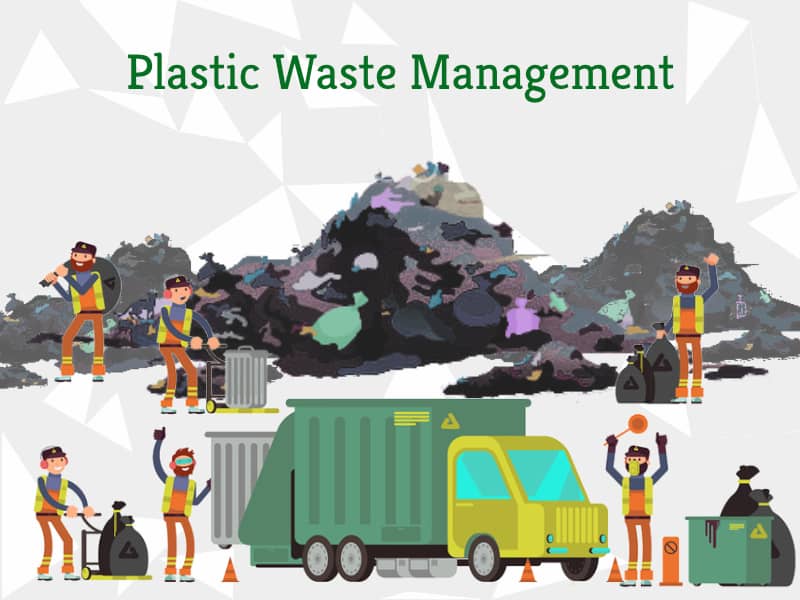Plastic Waste Management has 4 options or pathways.

Approximately 60,000 Tonnes of plastic waste is generated daily which accounts for over 10% of the total waste generated in the country.
Plastic waste management is the only means available to tackle plastic pollution and all the problems arising because of it.
There are essentially four options or paths for plastic waste management :
- Primary Path : Re-Extrusion
- Secondary Path : Mechanical Recycling
- Tertiary Path : Chemical and Thermal Recycling
- Quaternary Path : Energy Recovery
Primary option or path for Plastic Waste Management : Re-Extrusion
Re-Extrusion of plastic waste involves the introduction of clean scrap of single types of plastics that can be re-entered into the manufacturing process.
This is usually difficult and not practical as plastic scrap is not clean nor segregated based on their types or code.
It is also limits the management of waste plastic to specific products.
Secondary option or path for Plastic Waste Management : Mechanical Recycling
Mechanical Recycling of plastic waste involve the use of one or several mechanical processes on waste plastic before reusing or repurposing it.
This usually involves the following steps:
- Cutting/Shredding
- Separation of contaminants
- Milling
- Washing and Drying
- Extrusion
This path way for plastic waste management faces a great challenge since it requires homogenous plastic types. This means, it is necessary to segregate plastic waste by type.
Tertiary option or path for Plastic Waste Management : Chemical and Thermal Recycling
Chemical and Thermal Recycling of plastic waste involves the use of advanced technical processes that break the plastic materials into smaller constituent molecules. These can then be used as raw materials for the production of several types of petrochemical and / or plastic products.
These can be broadly categorized under three categories based on their conditions:
- Pyrolysis
- Gasification
- Hydrogenation
These processes usually yields :
- Gases with high calorific content
- Oils with high calorific content
This path for plastic waste management is advantageous since it can process heterogeneous mix of plastic waste.
Drawback of this pathway involves certain environmental concerns since some of the by-products can be toxic.
Quaternary option or path for Plastic Waste Management : Energy Recovery
Energy recovery from plastic waste involves the implementation of various methods to produce energy in the form of:
- Heat
- Steam
- Electricity
This path should only be opted for only when all other paths fail since it is associated with:
- Emissions of Carbon Dioxide
- Carcinogenic Pollutants
Technical Recommendations
Based on the above options and paths, the following can be recommended technically:
- Secondary option or path for Plastic Waste Management : Mechanical Recycling
- Quaternary option or path for Plastic Waste Management : Energy Recovery
These recommendations are based on the following observations:
- Not all plastic waste is segregated at source
- Not all plastic waste can be re-entered into the manufacturing process directly
- Chemical processing of plastic waste can be :
- Expensive
- Highly complex
- Toxic

